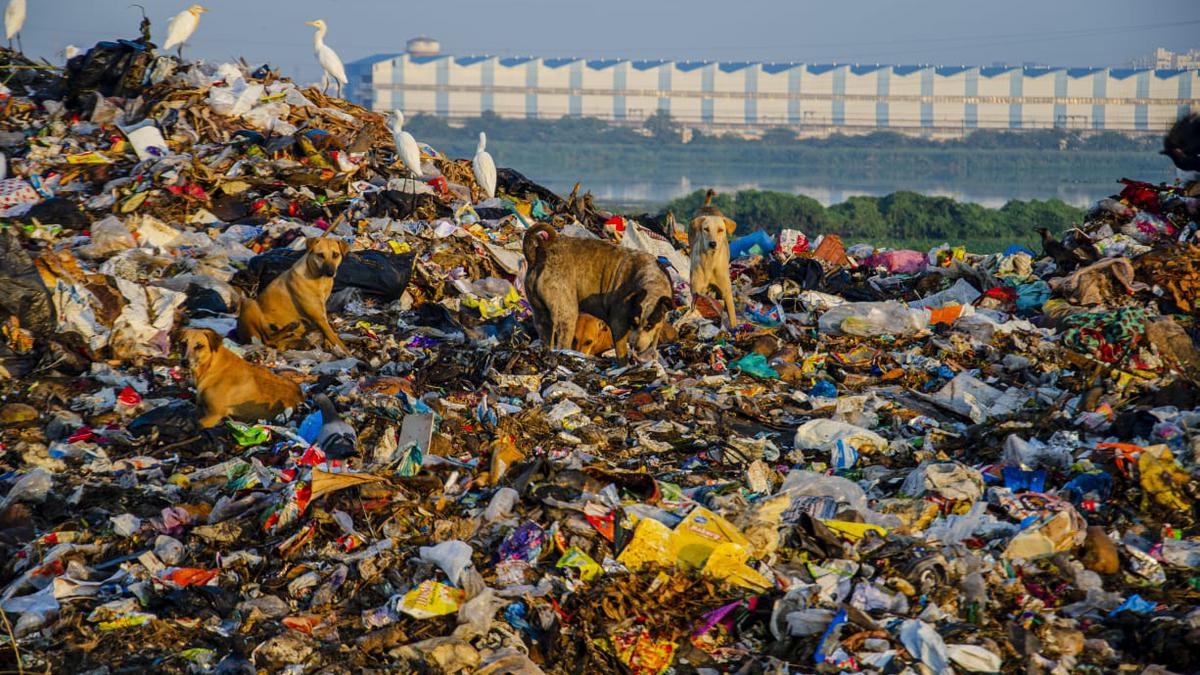The National Green Tribunal (NGT) has taken serious cognisance of a burgeoning garbage crisis in Southeast Delhi, issuing notices to civic authorities and demanding accountability under stringent environmental laws. This judicial intervention underscores a critical breakdown in urban waste management, exacerbated by administrative delays, and highlights the urgent imperative for transparent governance to foster truly sustainable and eco-friendly cities.
The NGT’s action, initiated suo motu based on recent media reports, specifically targets the Municipal Corporation of Delhi (MCD), the Central Pollution Control Board (CPCB), the Delhi Pollution Control Committee, and the District Magistrate of South East Delhi. Uncollected garbage, festering for days in localities like Shaheen Bagh and Sarita Vihar, has led to pervasive foul odours and escalating public health concerns. This dire situation is attributed to the non-renewal of a garbage collection contract with Dakshin Dilli Swachh Initiatives Limited (DDSIL), a direct consequence of the prolonged delay in forming the MCD Standing Committee, which is essential for approving significant expenditures.
Beyond Delhi’s immediate waste woes, the NGT is concurrently addressing critical environmental degradation in other regions. In Tiruchirapalli, Tamil Nadu, the Tribunal has taken suo motu cognisance of the deteriorating condition of the Uyyankondan River. Once a vital irrigation canal spanning approximately 46 kilometres and irrigating nearly 32,000 acres, the river is now choked with thick vegetation and inundated with untreated sewage. The NGT has directed the CPCB and local authorities, including the Tiruchirappalli City Municipal Corporation, to investigate and submit a comprehensive reply, emphasising the urgent need for river rejuvenation for public health and ecological balance.
In a more positive development, the Berhampur Municipal Corporation in Odisha has reported significant progress to the NGT regarding the renovation and recreation of the Beda Bandha waterbody. Measures include rigorous cleaning, prevention of garbage dumping, and the installation of protective railings and fencing to curb encroachments. Instructions have also been issued to develop an eco-friendly park around the waterbody, complete with grass and plants. Public utility services like bathing ghats have been constructed, and solid materials are regularly removed from the water surface. This proactive approach, undertaken under the Atal Mission for Rejuvenation and Urban Transformation (AMRUT) Scheme, demonstrates a commitment to preserving vital urban water resources.
The NGT’s multi-faceted interventions across these diverse environmental challenges underscore the judiciary’s pivotal role in driving environmental governance in India. From compelling civic bodies to address waste management failures in Delhi to overseeing river and waterbody rejuvenation in Tamil Nadu and Odisha, the Tribunal is consistently pushing for greater accountability and adherence to environmental laws. These judicial directives are instrumental in ensuring that urban development is not only rapid but also sustainable, contributing to cleaner, healthier, and more equitable cities for all citizens.
Also Read: Tata Power installs over 30,230 transformers boosting Odisha’s power reliability


